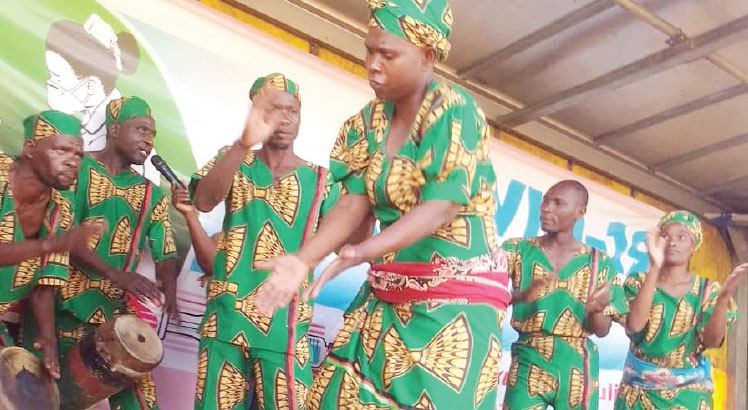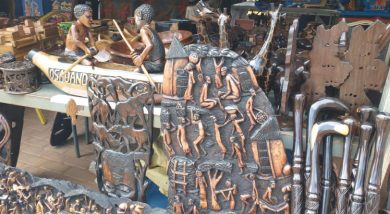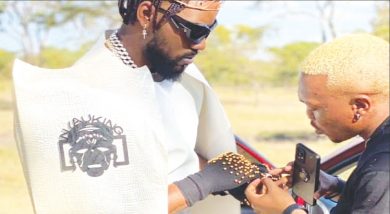29 years of dancing
Since 1994, the Judges Cultural Troupe has been dancing and entertaining people. They started as a gospel dancing group, but rebranded and became a traditional dances troupe in 1997 after a non-governmental organisation approached them to work on a campaign.
The leader Lonias Njelema said they were initially called Judges Choir and was male-dominated.
“So, after our original crew of eight, we decided to expand our horizon, added a few women and became a traditional dance troupe called Judges Cultural Troupe,” he said.
The original members were the late Gift Chimtumbira, Siyeni Bizwek, Elosi Njemela, Joe Magalasi, Thokozani Manyamba, Malizani Govati, Jaremiah Phiri and Njelema.
Njelema said when they rebranded, they went far and wide to learn various Malawian traditional dances.
“There is no district that we have not been to. We have taken our time learning and practising. Right now we can confidently say we know many traditional dances that we have,” he said.

Njelema said they have over the years appreciated the differences between traditional dances, where to perform and how they are supposed to be handled.
“Beni is not just beni. We have beni from Salima and another version from Mangochi,” he said.
The 12-member group, comprising eight men and four women, performs 11 traditional dances such as beni, chioda, chimtali, kazukuta, vimbuza, malipenga, ngoma, chilimika, tchopa, likwata, utse and mganda.
“We have different versions of mganda by the way. There is mganda performed in the North and we have another version performed in Dedza and surrounding areas,” he said.
Njelema said the group does not perform Gulewamkulu because it is a sacred dance connected to a religion.
During the group’s recent performance at University of Malawi Great Hall, The Judges introduced a new contemporary dance which basically used signs and movement to communicate.
Njelema explained that the dance is meant to involve people with hearing difficulties.
“In that dance, we tell stories and even without hearing the sound or language, one can still follow that a man is pursuing his love interest, for example. We tell different stories that way,” he said.
The contemporary dance excited patrons with many rolling with laughter at how the performers communicated with signs, gestures and movement.
Commenting on cultural dances, a Unima academic Smith Likongwe said it is crucial for the new generations to learn these traditional dances.
“It is very important to preserve the culture through various traditional dances,” he said.
Njelema, however, bemoaned that cultural and traditional dances are no longer respected.
“We see too many groups just dancing anyhow and mixing different traditional dances. We see a group start a song with Mganda dance moves and finish it with Ngoma. That is unfair to our cultural dances,” he said.
The group has also appeared in various music videos.
At 28, Judges Cultural Troupe has no plans to slow down but continue to dance as their way of preserving culture.





